When Women Fought Back: Holly Maguigan’s Legacy in the Law
Her work forced the law to embrace a feminist conception of danger, threat, and defending yourself and your family.
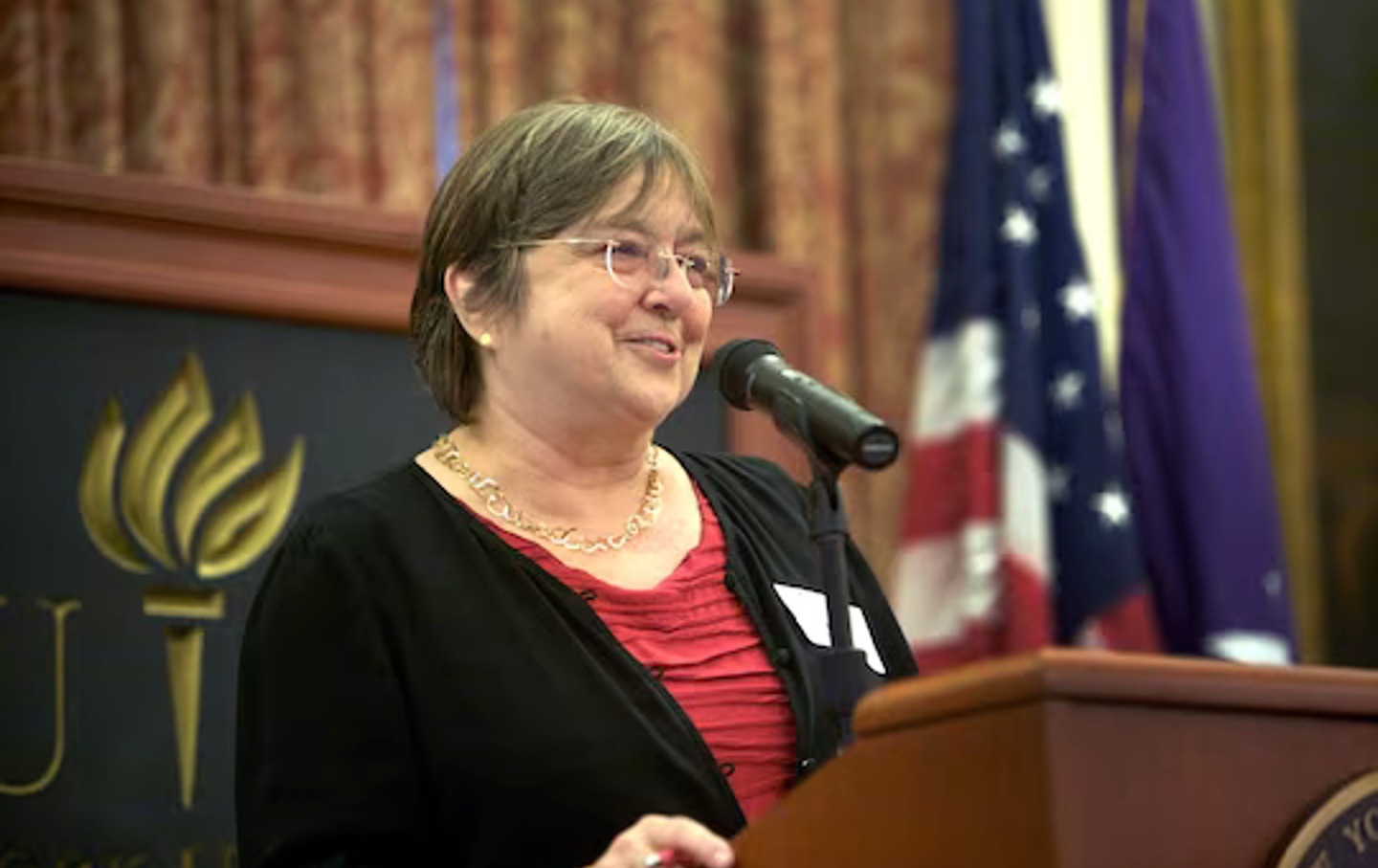
Most lawyers dream of winning a big case, perhaps someday arguing before the Supreme Court, or getting their picture in the The New York Times when they’re standing on the courthouse steps demanding justice for their client. Few ever imagine that their work will completely revolutionize the law’s approach to a pressing social problem. But that’s what Holly Maguigan did.
A feminist activist, lawyer, and law professor, Maguigan began practicing criminal defense and civil rights law in Philadelphia in the 1970s when domestic violence was treated as a private matter, undeserving of the law’s attention or concern. Only when women fought back against their abusers did the law take notice, treating them as hysterical man-hating killers who deserved the full opprobrium of the criminal law, while their abusers were portrayed as innocent victims.
Holly’s life’s work was devoted to changing that script, illuminating the pervasiveness of intimate partner violence, and convincing courts to take a feminist approach to cases where survivors fought back. Holly insisted to judges and juries that her clients were acting rationally and in legitimate self-defense, and not because they suffered from a kind of “battered women’s syndrome,” as some would call it. Maguigan’s work pioneered the concept that survivors of intimate partner violence were not sick or mentally ill (or suffering from a “syndrome”), but rather acting rationally and reasonably to defend themselves.
Prior to Maguigan’s advocacy, the law of self-defense assumed a scenario in which one guy was jumped by another guy on the street outside a bar. The legal concepts of “imminent danger,” “reasonable threat,” and when the law would excuse inter-personal violence all rested on a masculine view of the world. Maguigan forced the law to embrace a feminist conception of danger, threat, and defending yourself and your family that centered the experiences of women who had endured unrelenting, daily abuse from a spouse or partner, not in a bar room, but in the home. She urged lawyers and advocates to move beyond the reductive confines of so-called battered women’s syndrome to explain the impact of intimate violence without appearing to pathologize women and deny their capacity to act rationally in the face of routine violence in their lives.
Holly came into this work at a time when many domestic violence advocates built alliances with prosecutors, and saw defense attorneys as the enemy. Sue Osthoff, co-founder of the National Clearinghouse for the Defense of Battered Women, describes this time so well: “Back then, most anti-DV programs were working hard to get the police to arrest (batterers) and with prosecutors trying get them to throw the book at the batterers. Most anti-DV advocates saw defense attorneys as those (icky) men (they were mostly men then) who (unfairly!) defended rapists and batterers. Then they met Holly or heard her speak! Holly’s work defending victims of battering charged with crimes and her training programs for anti-DV advocates were critical in opening up anti-DV advocates’ hearts and minds about criminal defense attorneys and defendants’ rights generally.”
After serving as a public defender and then practicing law with a prominent civil rights firm in Philadelphia, in 1987 she joined the faculty at NYU Law School, educating scores of future lawyers. One of Holly’s remarkable qualities was her humility, marked by an unwavering commitment to principle, accompanied by a willingness to revisit and reassess the wisdom of positions she had taken in the past—a capacity that was rare then and has become even more hard to find in our current polarized and adamant political times. In a lecture about domestic violence in 2012 she said, “Twenty years ago I was convinced I asked the right questions and had the right answers…. Today I have only questions.”
Holly Maguigan died on November 15, surrounded by her husband, Abdeen Jabara, her daughter, Miranda Tully, and close friends. With her passing we lost one of the most influential feminist advocates, teachers, and mentors of a generation. I knew Holly as a colleague and a friend, and always teach her writing on domestic violence and the law of self-defense in my class on Gender Justice. I invited those who knew her and her work best to offer remembrances of Holly’s mark on them and the world.
Sue Osthoff, cofounder of the National Clearinghouse for the Defense of Battered Women in Philadelphia: “Her smarts, humor, and her abilities to push people to think better, smarter and harder helped to transform the anti-dv movement. She was a bridge builder—between anti-DV advocates and defense attorneys as well as between scholars and practicing attorneys and between students and criminal defense. Holly was a champion of the powerless and other low-power people (victims of battering fitting into that group). Her understanding of power dynamics was more honed and integrated into her whole way of being, thinking, and doing than any white person I know (or knew). Holly changed my life in so many ways. It’s clear that I am only one of the people whose life was better because Holly was in it.”
Helen Hershkoff, Herbert M. and Svetlana Wachtell Professor of Constitutional Law and Civil Liberties, and codirector of the Arthur Garfield Hays Civil Liberties Program, NYU Law School: “Holly was one of the most, if not the most, preeminent scholars of domestic violence. When she entered the field, most criminal law scholars accepted the existence of something called battered woman syndrome, popularized in movies like The Burning Bed, which relied upon psychological theories of learned helplessness. Holly quickly saw that the problem was not that abused women had pathological personalities. The problem was that power was pathologically distributed, and abused women didn’t have enough of it. Holly became the most cited scholar in the field, and through her work with NYU’s comparative law clinic, exerted far-reaching international influence, especially in India and at the United Nations.”
Shamita Das Dasgupta, PhD, cofounder of Manavi, an Organization for South Asian Survivors in New Jersey: “I learned from Holly that when something is not working (e.g., punishment to stop battering), ratcheting it up is futile. In such a case, it is important to look for a different solution that might circumvent the legal system totally. She was a lawyer’s lawyer, a teacher’s teacher. Oh, I am going to miss her so much. The movement has lost an amazing champion.”
Jules Epstein, Edward D. Ohlbaum Endowed Term Professor, Director of Advocacy Programs, Temple Beasley School of Law: “Holly was exceptional in the courtroom, and always with a tiny smile on her lips. She once explained the “gnat” theory of litigation: Be the gnat biting the cattle and then quickly dashing off as it swings its tail, only to sting again (and again and again). And in the world of the defense of victims of battering who then are charged criminally, she was a national leader and fearless advocate.”
Popular
“swipe left below to view more authors”Swipe →Ellen Yaroshefsky, Howard Lichtenstein Distinguished Professor of Legal Ethics, Maurice A. Deane School of Law at Hofstra University: “Holly was a role model for women criminal defense lawyers. There were so few of us around the country. Our battered women’s work was collaborative and groundbreaking. She was forever joyful with a knowing smile and terrific smarts when she said “The goal and reward is to get a jury to put NOT and GUILTY in the same sentence.” She was a dogged defense lawyer who reminded generations “You cannot build social justice off the backs of indigent black and brown defendants.” Wise woman. Great friend.”
Julie Goldscheid, Professor of Law, CUNY Law School: “Holly’s passing is a huge loss, but her contributions will live on. Her teaching, advocacy and scholarship has been particularly impactful in helping to shape how courts analyze self-defense claims by intimate partner survivors who face charges because of their use of violence against their abuser. She focused on increasing access to fair trials and insisted that legal definitions must be grounded in the lived experience of survivors and that definitions of self-defense not be used to pathologize or essentialize survivors. Her work was groundbreaking and will resonate for generations. Her voice will be sorely missed.”
More from The Nation
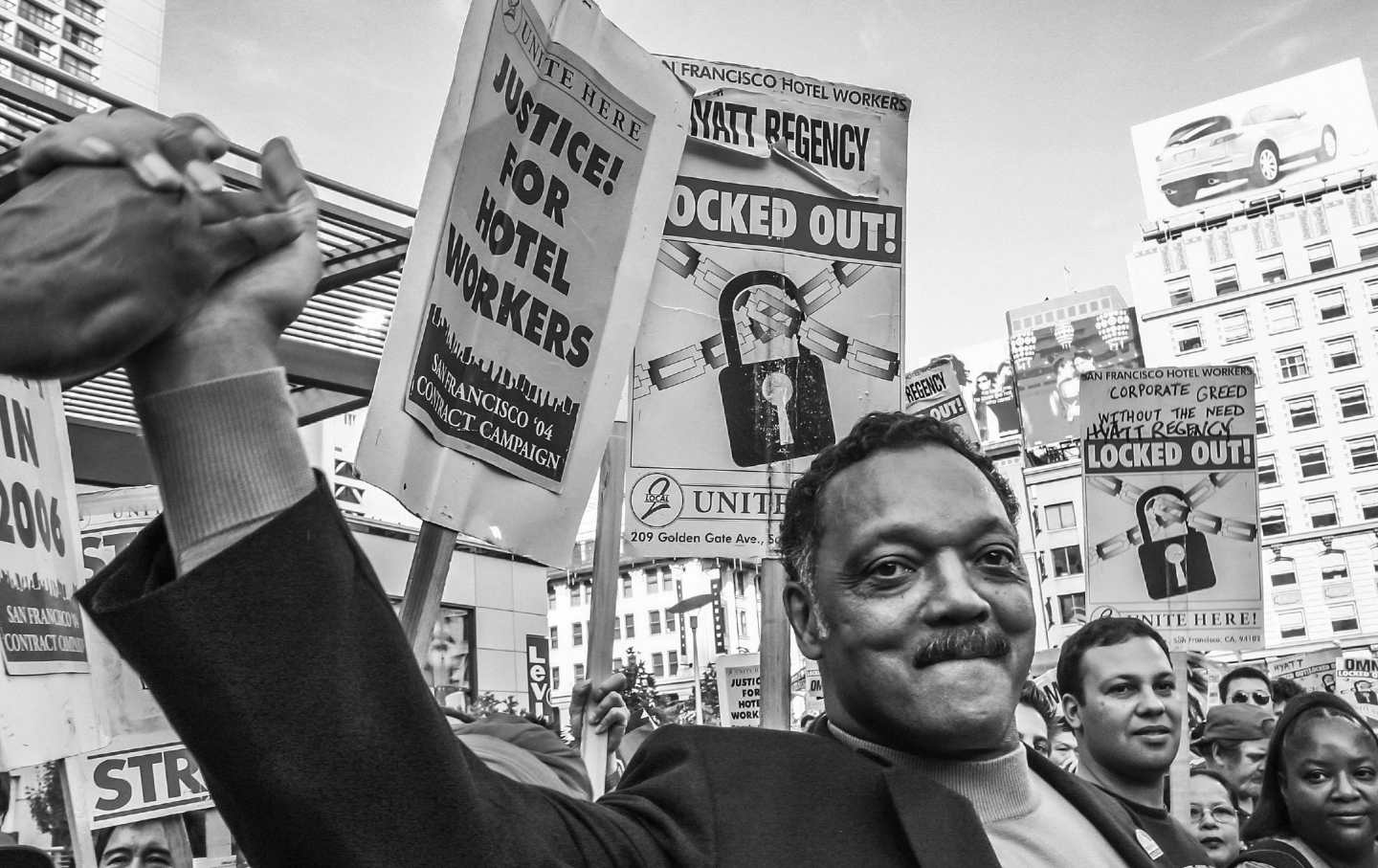
Jesse Jackson Still Provides Light in These Dark Times Jesse Jackson Still Provides Light in These Dark Times
We would be wise to follow the path he forged.
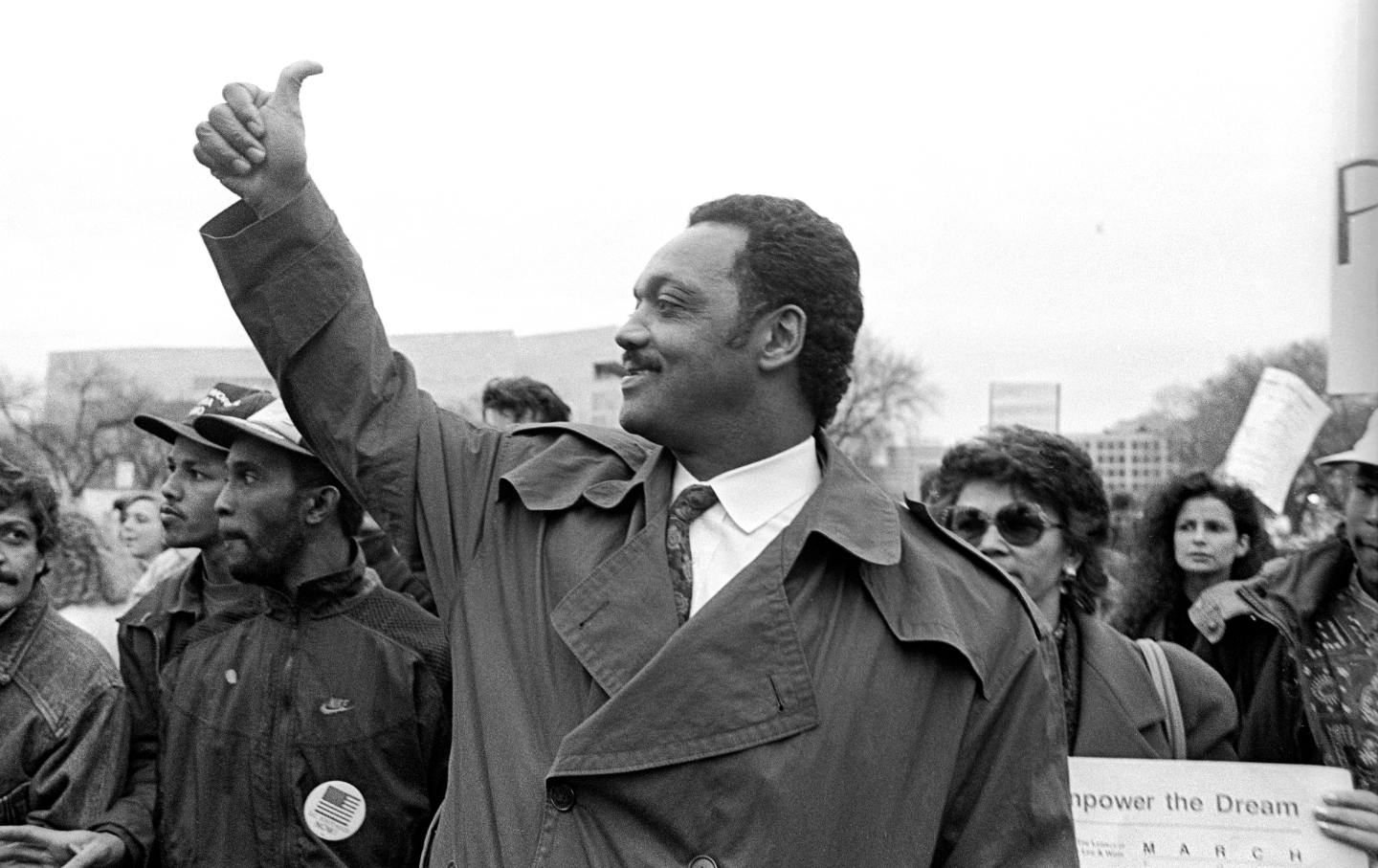
Jesse Jackson Gave Peace a Chance Jesse Jackson Gave Peace a Chance
The iconic civil rights leader, who has died at 84, made anti-war and pro-diplomacy politics central to his presidential bids and his lifelong activism.
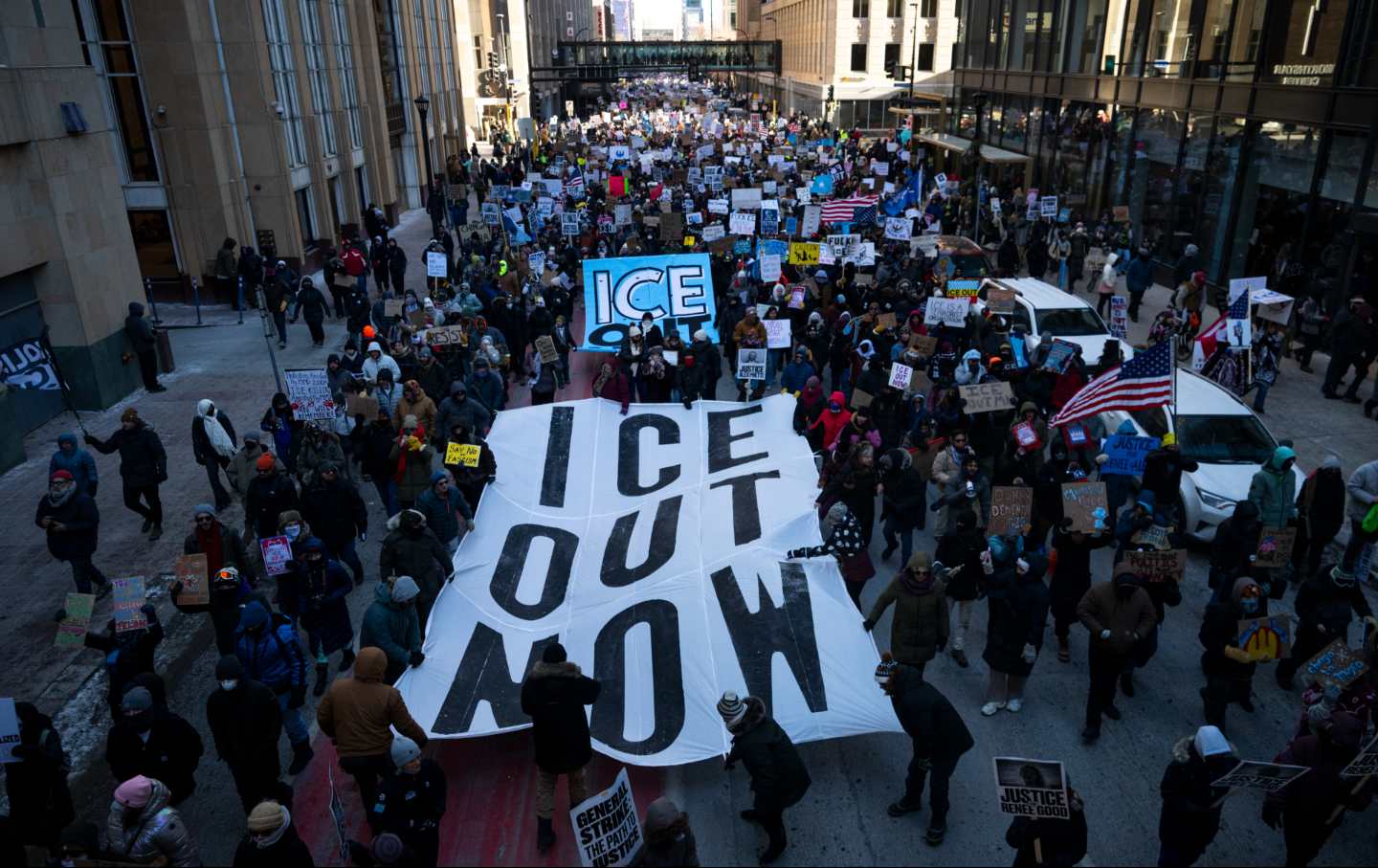
ICE Melts in the Minneapolis Winter ICE Melts in the Minneapolis Winter
Now it’s time to abolish the agency and impeach Kristi Noem.
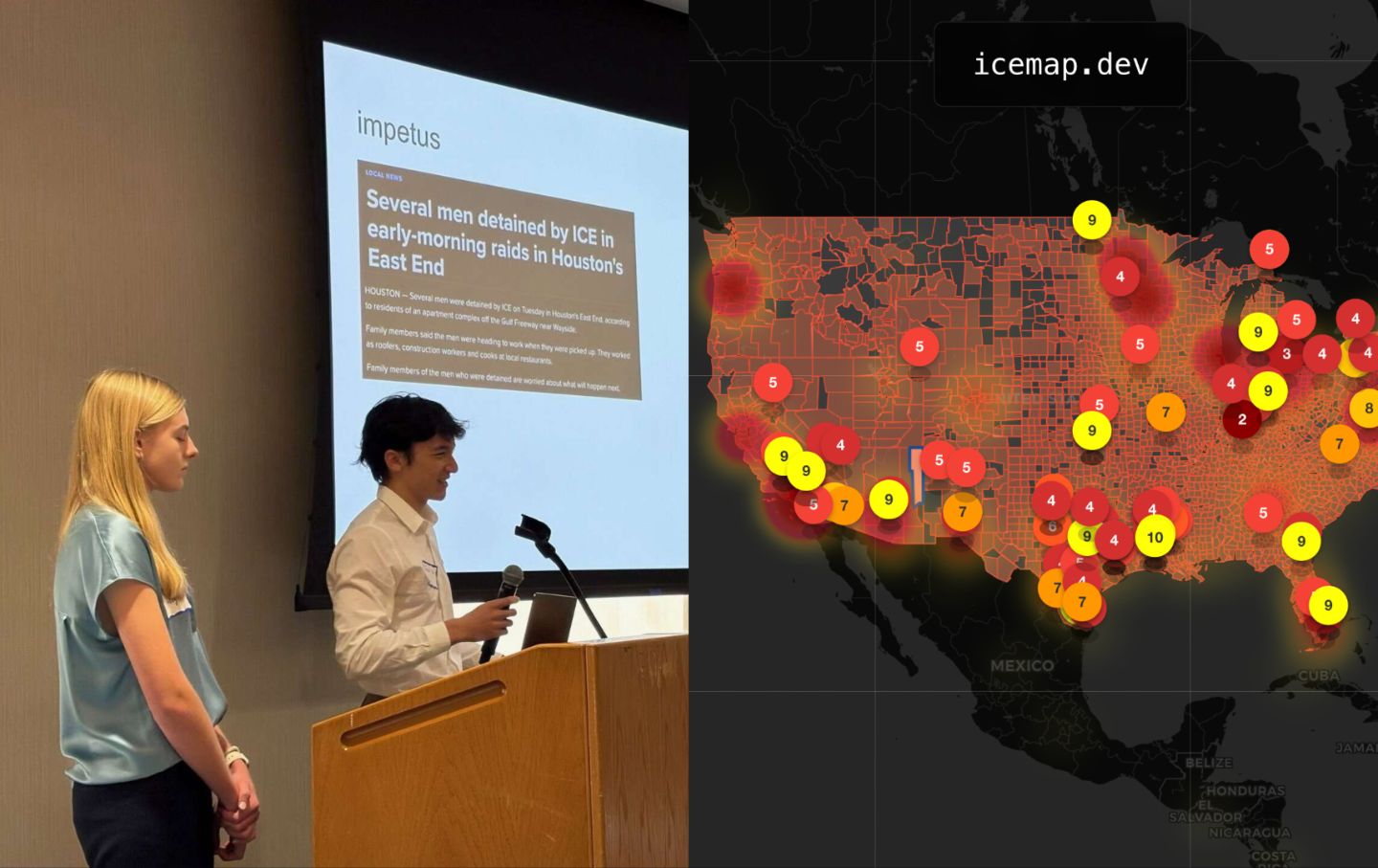
How 2 University Freshman Are Tracking ICE Enforcement Actions Across the Country How 2 University Freshman Are Tracking ICE Enforcement Actions Across the Country
With ICE Map, Rice University students Jack Vu and Abby Manuel hope to help communities understand where immigration enforcement activity is happening and how it unfolds in real t...
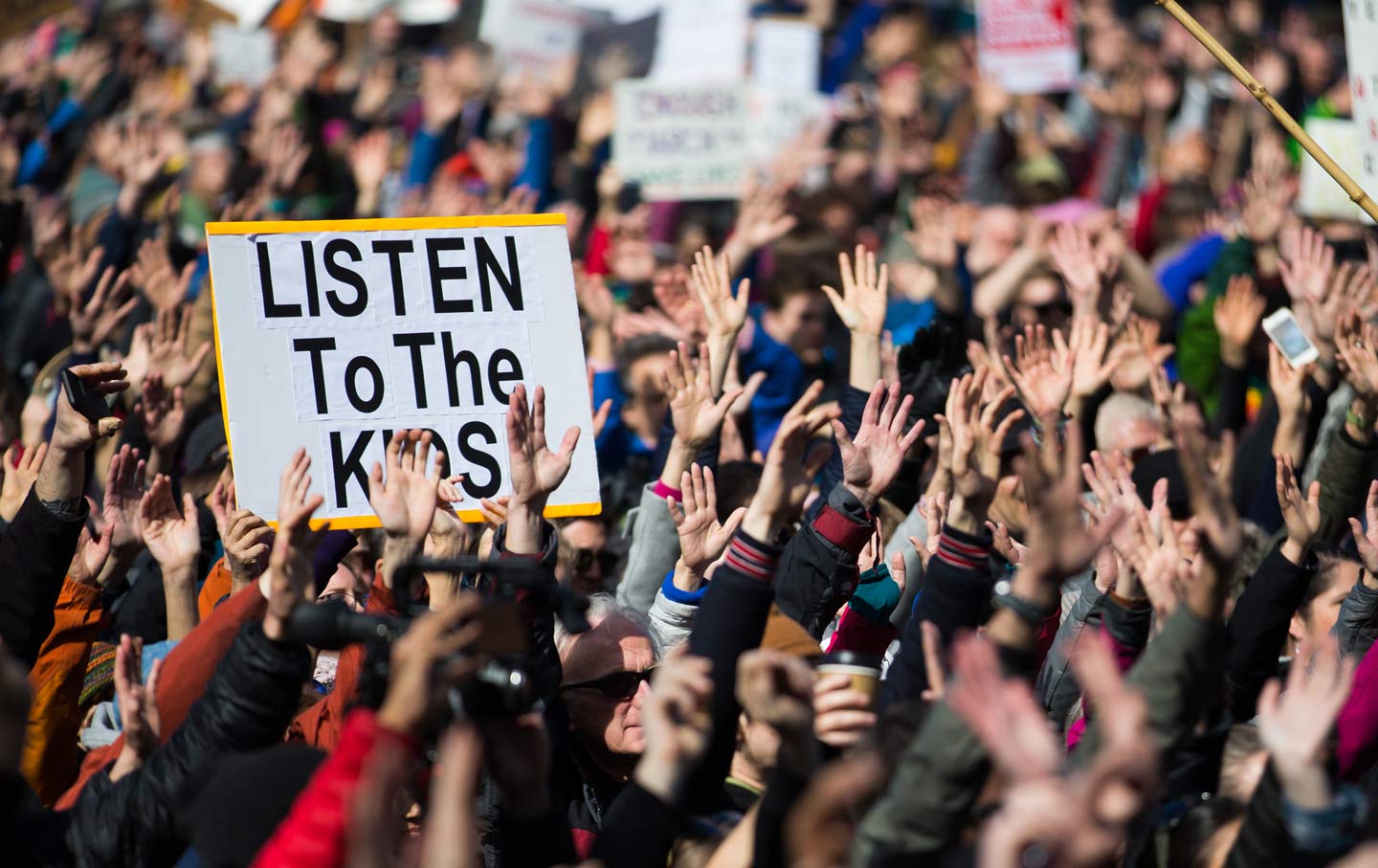
Meet the Young Organizers Survival Corps Meet the Young Organizers Survival Corps
Young organizers from around the country gathered at Haley Farm to study past social movements and train in the tactics of nonviolent resistance and grassroots organizing.
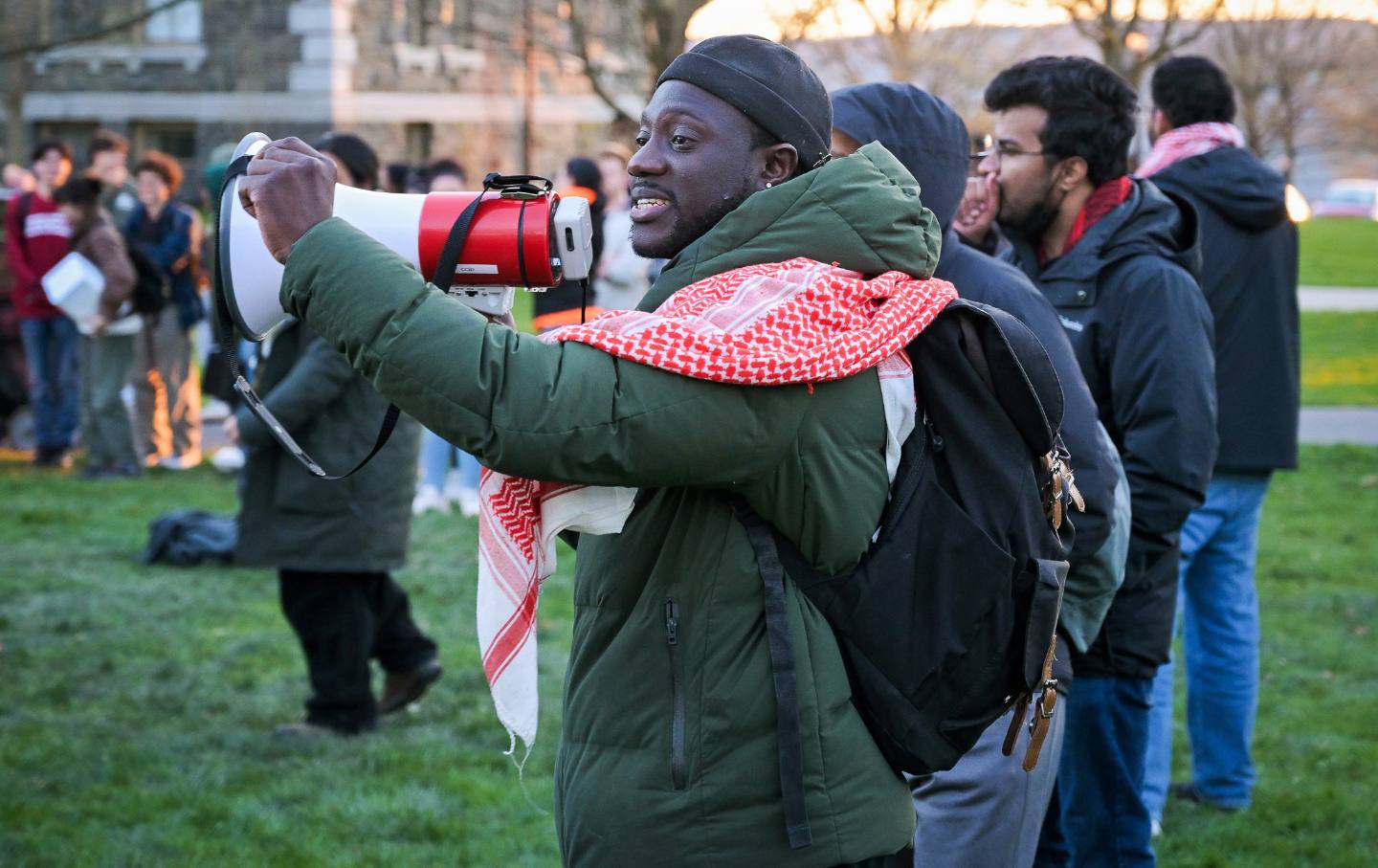
I Fled the US to Escape the Security State. Instead, It Followed Me. I Fled the US to Escape the Security State. Instead, It Followed Me.
My recent detention at Heathrow shows that the architecture of state repression knows no borders.


